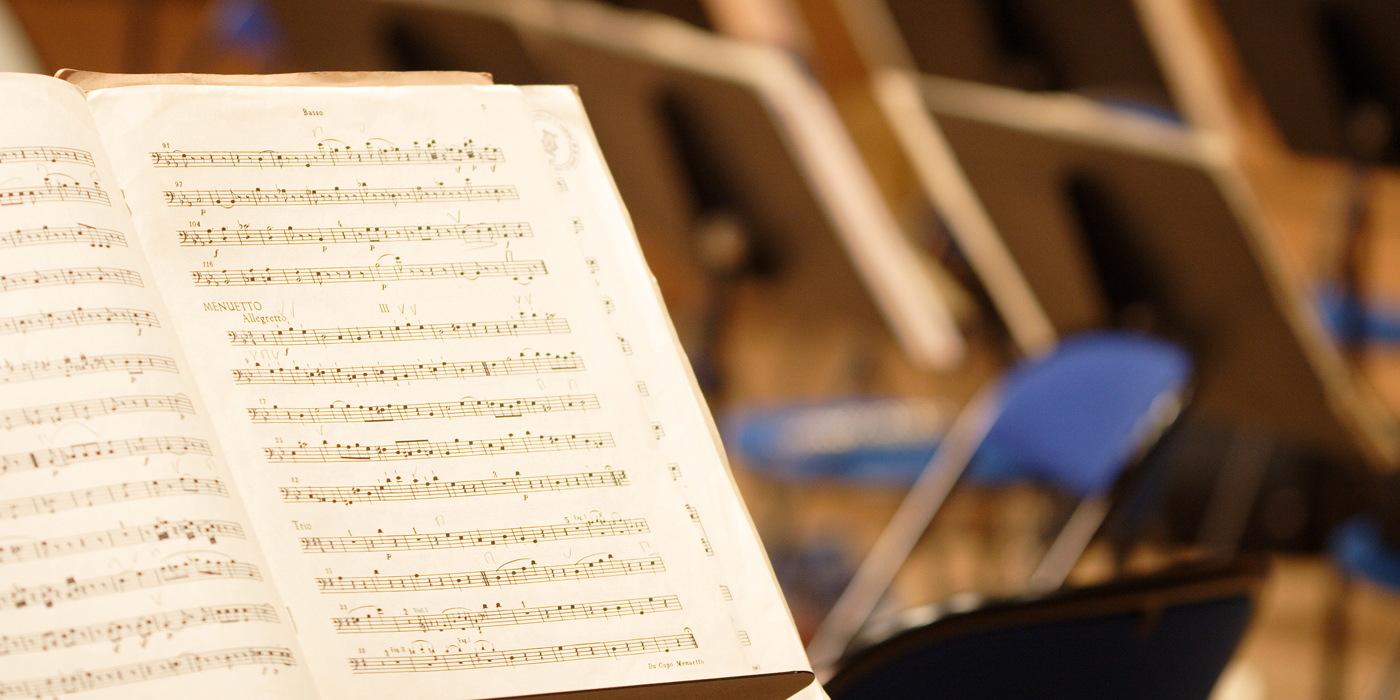
This past fall, after teaching college music theory for 17 years, I took a job teaching 4th through 8th-grade band at a small independent school. When I arrived, there was some miscellaneous equipment, a full set of music stands, and one drawer full of music. In that drawer was some good stuff, but only a few of the pieces were both grade-appropriate for the students and had not been performed recently. With an additional desire to add diversity to my programming I knew that I needed to buy some music, but with a budget of only $300 I knew immediately that I had to find creative, and cheap, solutions.
My first order of business was to find some music for both my very small middle school band and my fifth-grade band for the holiday concert, and then to make a plan for programming music for three bands (including the fourth-grade beginners) for the two spring concerts. Fortunately, I am a composer and have the ability to quickly generate arrangements and original music for my ensembles, but I still needed much more than I could provide.
Copyright Law
I understand that there are times when well-intentioned people struggle with copyright. For some perspective, when I took my first band directing job over 20 years ago I played pretty fast and loose with copyright. Without going into specifics, there were a few instances where I copied some student parts and made some pep band arrangements without permission. I falsely believed that because I had the best interests of my students in mind, and because it was for educational purposes, I was in the clear.
Fortunately for me, and for my employer, my transgressions were mostly innocuous and I never faced legal repercussions. However, there could have been stiff fines for me and my school, and I most certainly could have lost my job. In the words of composer Robert W. Smith, trying to save money doesn’t always save you money.
According to the Music Publishers Association website, the following are expressly forbidden under copyright law:
- Copying to avoid a purchase
- Copying music for any kind of performance (there is an emergency provision)
- Copying without including the copyright notice
- Copying to create anthologies or compilations
- Reproducing material designed to be consumable such as workbooks, standardized tests, and answer sheets
- Charging students beyond the actual cost involved in making copies as permitted
I would go further and also warn against making digitized copies of parts and distributing them to your students on the internet, arranging music under copyright (including that cute Baby Shark arrangement for the pep band), and even lending scores to other institutions.
A note about lending libraries: There is a very real danger that with the rise of centralized libraries for music that we may end up in a situation where publishers feel forced to either charge more per copy, thus squeezing out the independent schools or smaller school districts, or move to a rental system similar to what the orchestral world uses. Neither of these potential outcomes will help us make music with our students and both will raise the price for music.
Disclaimer: I am not a lawyer. If you have specific questions about copyright, please seek the advice of a legal professional!
Free Music
So if we can’t copy music, then what do we do? Fortunately, a multitude of excellent resources exist for finding free band music. My first stop for acquiring holiday tunes – that were playable for even my youngest musicians – was the outstanding One Size Fits All Band Books. OSFABB has a large number of flex band style arrangements from grades 1-3, with the majority between .5 and 1.5.
Other great sites with loads of free music, particularly for more advanced bands, include the Band Music PDF Library, which features thousands of works written before 1923 that are now in the public domain. This collection includes marches by Karl King, Henry Fillmore, and John Philip Sousa among a variety of works originally published by companies such as C.L. Barnhouse and Carl Fischer during the golden age of band music. Another collection of free sheet music is available through the United States Marine Band.
If you have any arranging or transcribing skills, there is also the exceptional International Music Score Library Project which has over 137,000 works in the public domain! There are also numerous sites with free chorales, warm-ups, and even free beginning band method books. I’ll include that list of some of those resources at the bottom of this article. Social media groups and message boards also offer a tremendous resource for finding free music, and often a request for suggestions is answered by tens or even hundreds of responses.
SmartMusic is more affordable than you think. Try it for free!
Other Solutions
There are many other great free resources and ideas for filling a music library but I want to mention two other really great ways to acquire music on a limited budget. The first comes from Ron Sikes, the band director at Jefferson VII High School in Missouri. On the bottom of his concert program, he states that anyone who buys a piece of music for the school will have their name written in the score and then each time it is performed they will be mentioned in the program.
Another great way to find inexpensive new music, and it even offers the bonus of interaction with a living composer, is to look for inexpensive commission consortiums for new band music. I’ve seen composers, particularly young composers, with buy-in fees for group commissions as low as $25 or $30!
Final Thoughts
When I mentioned this article to Robert W. Smith, who publishes several of my works for band, he told me that as teachers, we need to spend money on what we teach. Without spending money on music, there will be very little incentive for composers to keep writing and without new music we lose some of the vibrancy of what we do. Remember that music is our curriculum and we need to support those who are the creators, whether they are self-published or distributed through one of the large traditional publishing companies.
And finally, if anyone reading this really needs a free Grade 1.5 or Grade 3 march, drop me a line and let me know. I’ve got two marches that I wrote and I’m happy to send either or both to anyone who has a genuine need for more literature!
Additional Resources
- 36 Chorales for Band
- Three Warm Up Chorales for Band
- The Habits of Musicianship (University of Texas)
- Beginner Band Books by Matthew Provino
- Beginner Band Method Books by Justin Dickson
